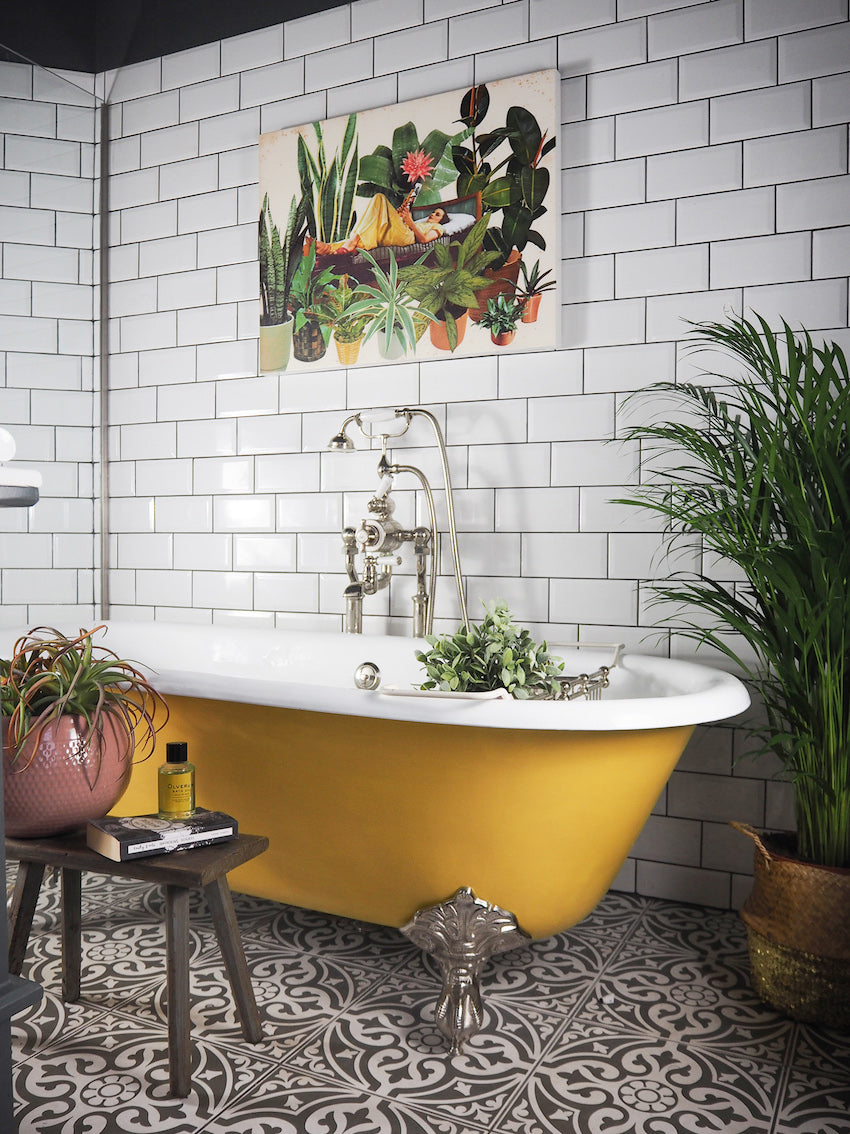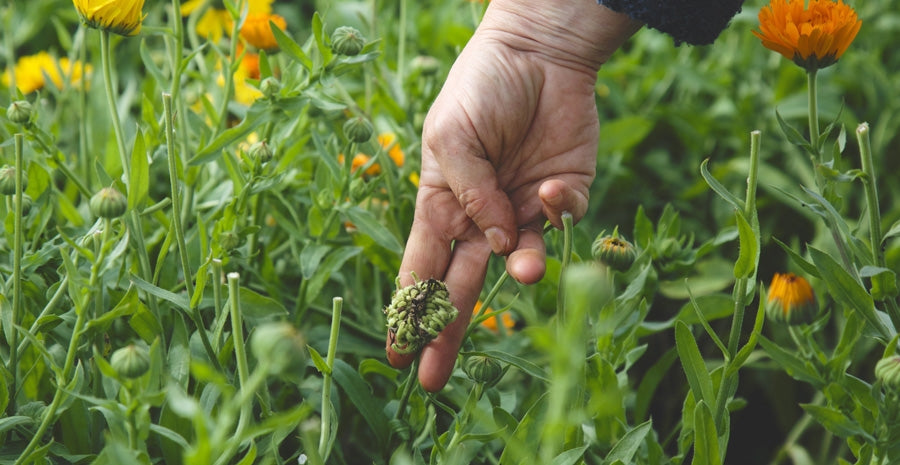Responsible consumption can be transposed into all spheres of our lives and can sometimes seem like a colossal task. One of the fundamental principles of the zero waste movement is the question of necessity. You must first ask yourself: can the product I buy and use be used more than once? I have already covered the subject in previous posts, including a practical guide for an initiation to this way of life . A few weeks ago, we gave you some tips on how to integrate the zero waste lifestyle into your kitchen . We are now looking at another important room: the bathroom.
Tool up intelligently
To implement zero waste in your bathroom, you must first equip yourself with durable tools made of ecological materials. We often have way too much equipment and decluttering helps to make smarter choices. Of course, the objective here is not to throw away everything you already have, but rather to obtain reusable products when the need is really there.
To begin the process, one must first assess the part and see what is used several times and what is thrown away after a single use. Among the most used products, there are first of all the handkerchiefs , especially with our harsh winters and the cold which tends to stretch and cling very hard! A simple way to reduce the amount of waste is to get washable tissues made of cotton. We all have this image of our grandparents who had their sleeves or their pockets filled with small squares of colored fabric. Why not take the opportunity to make it yourself with floral, neon or lace-embellished fabrics!
Then there are the ear picks . There are now reusable options. Made of bamboo, the natural biodegradable rods allow for gentler cleaning. They thus reduce the risk of wax plugs, often associated with traditional cotton swabs. In addition, maintenance is simple. Simply clean the tool after each use. Reusable ear picks save money and significantly reduce the environmental impact of the daily use of commercial ones.

credit: Bkind
Equally important objects, although they do not require bartering what we already have, make it possible to reduce our use of plastic: the bamboo toothbrush, the wooden hairbrush and the stainless steel razor. For the hairbrush, there is the vegan version which, with its bristles made entirely of organic materials, reduces the frequency of shampoos. The natural fiber bristles distribute sebum from the scalp to the tip for better hair fiber health. Then there is the bamboo version, whose stems, like the base, are made of wood. Having the same characteristics as the first, it also helps to reduce static, particularly useful during the winter when the dry heating air creates electric looks!
The heart of the matter
Now let's talk about toilet paper. Sometimes the transition can be more difficult. The subject can be controversial with regard to hygiene and ecology. The zero waste movement favors hygienic cloth wipes that are washed after each use, ideal for small needs. You can leave a bin next to the toilet to collect the used ones, then put everything in the washer afterwards. Although there is water consumption for washing, the transformation and production of disposable toilet paper is also to be considered. Obviously, for the guests, it is still very practical to keep a roll of single-use paper nearby!

credit: pinterest
If you're not ready to make the switch, one solution can ease your transition: the bidet. This very legendary instrument, but oh so present on the other side of the ocean, makes it possible to considerably reduce the quantity of toilet paper used each time. So, failing to take the leap, combined use with single-use paper made from recycled materials already makes a huge difference.
Clean without fuss
Once our body is fully ecologically refreshed, it is also important to transfer all these efforts to the part itself. Several companies offer products, not only non-toxic, but also in bulk. For laundry, detergents from the Unscented Company are part of it, in addition to being made in Canada, biodegradable and not tested on animals: I love it! And for stubborn stains, Madame Blancheville 's soap from Savonnerie des Diligences is a must, offered in zero waste format!
For drying, the ideal is to opt for the linen rope in the summer and for the interior supports for the winter. On the other hand, if you have to use your dryer, there are balls of wool specially for the machine . They reduce drying time by 25%, a substantial saving! They can be used for over 500 loads and compost once they have reached the end of their life.
The homemade option
Obviously, the best way to have a zero-waste home would be to do it all yourself. Since the bathroom itself needs a cleaning cure, the vinegar/baking soda duo works wonders! It's important to use this recipe sparingly if you use it for the bath. Its repeated use can damage the enamel of the bath and create long-term cracks.
Mirrors can be restored to their shine with a 1:3 mixture of vinegar and water. To reduce the smell, I suggest infusing your vinegar with some orange and lemon peels for a few days. It is, at the same time, an ecological way to recover kitchen scraps.

credit: Eco&Eco
For laundry, there are also several homemade recipes, but I have a crush on the one obtained using soap nuts, unearthed on the Trappeuses blog. The nuts can be used repeatedly for the concoction of our laundry soap. They are also compostable at the end of their life.
I don't claim to follow all of this advice to the letter, but I try harder every day. Remember that it is one step at a time, at your own pace, that you can make a real difference!

Reviewed By Melanie








Leave a comment
This site is protected by hCaptcha and the hCaptcha Privacy Policy and Terms of Service apply.